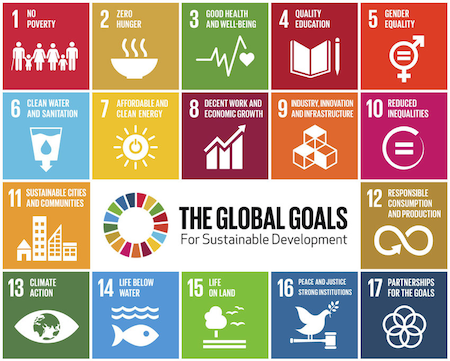Class 10 – Information Technology – Code 402 – Green Skills – II – Notes
Class 10 – Artificial Intelligence – Code 417 – Green Skills – II – Notes
Unit 5 – Green Skills – II
Sustainability
Sustainability is an art of living where we respect our environment and make use of the available resources only to the extent where we can replenish what is available to us for the accessibility of future generation.
Sustainability focuses on how human beings can live in peace and harmony with nature without creating ecological disturbance.
Sustainable Development
Development which meets the needs of the present without compromising the ability of future generations to meet their own needs.
The aim is to inculcate the value of using natural resources judiciously and still ensuring its availability for future generations.

We can contribute to create a Sustainable Society by following 4Rs’ and 1U of Sustainability. These are REFUSE, REDUCE, REUSE, RECYCLE and UPCYCLE.
- REFUSE: REFUSE is to say ‘NO’ to use products that may harm the environment.
- REDUCE: REDUCE is minimizing the use of the products that may cause harm to environment.
- REUSE: REUSE the products as far as possible, in order to reduce the waste generation.
- RECYCLE: After reusing the product, we must try to recycle it as far as possible.
- UPCYCLING: UPCYCLING is giving a new look to the old product and making it look desirable. Any product that is not usable can be upcycled with creativity and innovation.
Problems Related to Sustainable Development
Three major problems related to sustainable development are:
- Food: The amount of rich, fertile land needed to grow crops, such as wheat, rice, etc., is becoming less as we are using up more and more land for other purposes. Soil nutrients are also getting depleted and lots of chemicals are spoiling the soil due to use of chemical fertilisers.
- Water: We use fresh water from rivers and ponds for drinking and cleaning but dump garbage into them. The rivers and ponds are getting polluted. This way after several years, we will have no clean water for our use.
- Fuel: We are using a lot of wood from trees as fuels and for construction of homes and furniture. As more and more trees are being cut, it is affecting the climate of the place. Extreme weather conditions, such as floods, extreme cold or heat, are seen in many places, which affect the people living there.
Sustainable Development Initiatives
When plastics were banned by the municipal corporation of Mangalore, an innovator and entrepreneur Mr Avasth Hedge found an eco-friendly alternative. He made a 100 per cent bio-degradable bag which can dissolve in hot water and decompose in natural environment. This is now being used in many countries and is going to help the environment.
Another innovative idea was to stop the use of plastics spoons, forks, etc. Narayana Peesapaty made edible cutlery made out of a grain — these spoons can be eaten and even if they are not eaten they will easily decompose in the soil enriching it.
Sustainable Processes
Some practices, such as organic farming, vermi-composting and rainwater harvesting are being used to help preserve the environment. This helps in better quality chemical free crops while at the same time maintaining the soil quality for future use.
Our Role in Sustainable
Sustainable development can actually happen only when each one of us works towards it.
- Quality Education – Education helps us become aware of our role as a responsible citizen.
- Clean Water and Sanitation – We must make efforts to make India free of open defecation by building toilets and creating awareness towards sanitation.
- Affordable and Clean Energy – Using of solar power.
- Decent Work and Economic Growth – Study and find good jobs to take care of ourselves and our families. Work hard and contribute to society. Learn and develop skills so that we get add value in our community.
- Reduced Inequalities – Be helpful, friendly to one another.
- Sustainable Cities and Communities – Save energy by switching off lights and fans when not in use. Use natural light as much as possible. Use energy-efficient lights (LED bulbs) and appliances.
- Responsible Consumers and Producers – Reuse paper, glass, plastic, water, etc. Taking cloth bags to market carrying fruits and vegetables. Donate things we do not use such as clothes, books, furniture, food, etc.
- Protect Life Below Water – Protecting marine life, saving our oceans from pollution is necessary to preserve the marine life.
- Protect Life on Land – Planting more tree to replace the ones that we have cut is an important step towards sustainable development.
Sustainable Development Goals
United Nations in 2015 adopted 17 SDGs (Sustainable Development Goals) as a universal call to action to end poverty, protect the planet and ensure that all people enjoy peace and prosperity by 2030. These SDGs are :
- No poverty
- Zero Hunger
- Good Health and Well Being
- Quality Education
- Gender Equality
- Clean water and Sanitation
- Affordable and Clean Energy
- Decent Work and Economic Growth
- Industry Innovation and Infrastructure
- Reduced Inequalities
- Sustainable Cities and Communities
- Responsible Consumption and Production
- Climate Action
- Life Below Water
- Life on Land
- Peace, Justice and Strong Institution
- Partnership for the Goals
